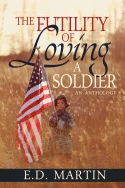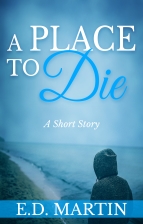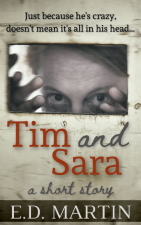 Last month, I was invited to give a short presentation at a writing conference for social workers. I’d previously done a panel on using writing as therapy, and my research interest is the effects of trauma on students, so this was my topic this time:
Last month, I was invited to give a short presentation at a writing conference for social workers. I’d previously done a panel on using writing as therapy, and my research interest is the effects of trauma on students, so this was my topic this time:
Writing can be a form of self-care for human service workers working with clients who have experienced trauma. Explore ways to process secondary trauma through writing, as well as how to balance accurately telling clients’ story while respecting their confidentiality and dignity.
Because participants said they found my presentation helpful, I thought I’d share it here too.
Therapeutic Sentences: Processing Through Writing
“A thing may happen and be a total lie; another thing may not happen and be truer than the truth.”
– Tim O’Brien, The Things They Carried
This quote strongly reflects the approach I take to writing. Many of my stories are based on composites of people I’ve worked with across my various education, criminal justice, and social work jobs, and while they’re not exactly true, their themes and messages seem to resonate with readers who’ve experienced similar situations. At the same time, however, as I write about the trauma my clients have experienced, I need to be careful to protect their identities as well as minimize the secondary trauma I might experience while writing about what they’ve gone through.
What is trauma?
SAMHSA (the national Substance Abuse and Mental Health Services Administration) defines trauma by the three E’s:
Individual trauma results from an event, series of events, or set of circumstances that is experienced by an individual as physically or emotionally harmful or life threatening and that has lasting adverse effects on the individual’s functioning and mental, physical, social, emotional, or spiritual well-being.
This is similar to a story arc – a character experiences an event, and how that character deals with the effects of that event (either short-term or long-term) makes up the rest of the story.
That said, there are six types of trauma, and which type is used can lead to different types of stories:
- Acute trauma results from exposure to a single traumatic event (eg, a hurricane, an armed robbery by a stranger)
- Chronic trauma results from extended exposure to traumatic situations (eg, growing up in chronic poverty, experiencing chronic hunger, the whole plot of Room)
- Complex trauma is “the experience of multiple, chronic and prolonged, developmentally adverse traumatic events, most often of an interpersonal nature…and early life onset” (eg, abuse by a parent)
- Identity trauma (historic or collective trauma) which is the result of traumatic events that affect an entire group (eg, the Holocaust for Jewish people, pretty much the entire history of Native Americans since Columbus)
- Continuous or ongoing traumatic stress (CST) occurs “in contexts in which danger and threat are largely faceless and unpredictable, yet pervasive and substantive” (eg, the abuse or trauma right now, with no possible end in sight)
- Secondary traumatic stress is due to vicariously experiencing trauma through the primary victim’s descriptions of the traumatic event or experience (eg, hearing a client describe his or her traumatic experiences)
Writing as a means of processing trauma
For me (ie, someone who hasn’t experienced much trauma but works with clients who have), writing is a way for me to put into words what my clients have experienced, when they don’t have that chance themselves. It’s about making these “salt of the earth people,” as a reader once described them, real so that people can understand them as people and not caricatures. It’s about highlighting a problem so that others can identify with it.
But this is just me, as a social worker/teacher/advocate. I surveyed a writers’ group about how they use writing to process trauma, and here’s what they said:
Roleplay what could have happened
- “I’ve taken real events and environments that happened to me as a child, placed a character in those events, and tried to make it so that she doesn’t come out completely screwed up. I’ve tried to give her the allies she needs, the character traits she needs, and the merciful intervention she needs so as not to end up homeless and in a mental institution by age 21. I’m finding the experience extremely satisfying. It’s like going back in time and giving my young self a second chance.”
- “I turned to writing as a means of trying to process some of the actions and reactions of people, creating truly fictitious characters with created reasons that would lead to the same kind of outcomes as I experienced as sort of a roleplay on what might have caused what I experienced.”
- “To sort those feelings, I wrote a very short fictional story about a character in my situation magnified. I gave her a back story worse than my own, raised the stakes, and put her though hell…. But writing about it in a fictional setting gave me the freedom to untangle those emotions from a safe distance.”
- “Fictionalizing real events gave me control over how I see them, how they play out, and what the result is going to be. I don’t have control over what happened, but I can change the what-happened-next.”
- “Sometimes, I get a kind of fictional revenge on people and situations that have been less than helpful to me, when I would never seek revenge in real life.”
Coping with death
- “I turned back to writing after a family friend died from cancer last November. I found it was a way to process my emotions after I had to be ‘the strong one’/ referee at the hospital the night he died.”
- “A close friend committed suicide a few years ago, and he keeps finding his way into my short stories/flash fiction. Often they’re not directly about him, but more about grief/coping with loss, and I keep finding myself writing his personality, looks and characteristics into my characters. I think it’s an unconscious attempt to both to process his death and to keep his memory alive.”
Coping with general emotions
- “When I experience something traumatic or emotionally draining, I find it much less overwhelming if I am writing.”
- “A lot of writers have personal issues – Stephen King, to name but one, was a long-term alcoholic. If you read The Shining, you’ll see the story of a man tormented by his demons and slowly falling apart. But what makes a writer good, and readable, is the ability to harness personal emotions and turn them into something bigger, more creative and more ‘universal.'”
- “I came to realize the whole book was about mourning my childhood. Each of the characters who deal with emotional wounds could be me, but especially the main character whose story arcs across the book.”
- “The feelings attached to my problems, some of the thoughts and very few aspects flow in my WIPs.”
Broader social issues
- “I have at times used fiction to process my personal issues with things like cultural identity and patriotism. But these are broad concepts, not specific incidents or people in my life. I could explore these issues easily enough while writing fantasy.”
How to write about trauma (yours or others’) ethically
When telling a story that’s based in truth, whether it’s your story or one that you’re telling on behalf of others, there are ethical considerations to take into account. First off, how will others react if they’re portrayed as the villain, or if you change the story to make it “better” but make them come across worse? What about potential legal ramifications?
The authors I surveyed also shared their tips for writing a story based on trauma, without causing problems for others.
Change names or traits
- “All you have to do is change gender, race, and/or age. writing about your female cousin? turn it into an octogenarian black man…. Funny side note: after my first steamy novel came out, several men from my past came forward to claim the MMC was based on them. no one has yet claimed to be the overbearing sister, the philandering ex, the pervy boss, etc…”
- “I keep getting so much feedback about how “one note” one of my “villain” characters is, and so I’ve had to really stretch my empathy to find ways to make her more human. So…maybe my mother WON’T recognize herself by the times it’s through lol. Or she’ll be a more likable character and it won’t matter.”
- “The people and the events get scrambled in my fiction. What happened to someone unrelated and younger than me happens to an older family member of my main character.”
Use bits and pieces of real people
- “Use real people but swap their stories, or spread theirs out to others, a piece here a piece there, the real barista gets a part of the real bartender gets a part of construction worker.”
Focus on emotions and themes
- “The core of the story is real but the specific events were fictionalized. It focuses on how I processed my own feelings at the time, that was the important part I needed to get out. Specific events didn’t matter, only that they engendered the same emotions I felt.”
- “But there in that imaginary world, there are many of the issues that plague us today. Racism, sexism, religious extremism and bigotry, even some environmentalism and conservation issues are there. It isn’t ‘in your face’ but it is there. I don’t preach, nor do I really provide much in the way of ‘answers’ for all those ills. I just plant the questions and hope readers are prompted to think for themselves. I hope they recognize the issues and come to their own conclusions of what should/could be done about them.”
- “The underlying themes seem to reflect what I’m feeling about real world events, but the events themselves bear no resemblance to reality.”
Change the genre
- “It helps that it’s a bit of magical realism. Taking a sideways approach to reality put some distance between what happened and what I wrote.”
Use a pen name
- “What would I do to maintain anonymity? . . . well this is where me not telling friends and family (who most likely would surface in my stories in some way, if i did that sort of thing) what I write or anything about my pen names.”
Conclusion
Everyone experiences and reacts to trauma, and writers are no exception. We write about our trauma and that of others, as a way to process what we’ve experienced and share experiences with others.
If you’re a writer, how do you use writing to process trauma? What techniques do you use to write about it ethically? Please share your thoughts in the comments!





